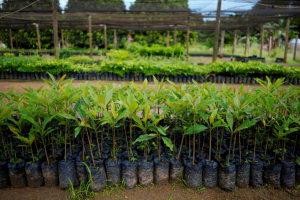Low Covid vaccination rates in some frontier Asian states continue to challenge their economies, while these small, risky and illiquid markets are also exposed to risks from the rising yields likely to be offered by US Treasury bonds in the months ahead
(AF) While the recent spurt in vaccinations across Asia has lifted hopes of a faster economic recovery in the region, low jab rates in some frontier nations continue to pose a risk to economic revival and a lift for public finances, the global ratings agency Fitch says.
Low-rated frontier markets are also more exposed to rising US bond yields – known as a Treasury ‘taper tantrum’ – than larger mainstream emerging markets, because of their larger external financing needs and the high level of foreign-currency debt held by governments.
“The low rates of vaccination and outbreaks of new infections pose near-term downside risks to our economic growth forecasts [for these markets], and could delay recoveries from the pandemic shock of 2020,” Fitch said in a recent report.
However, relatively narrow applications of lockdowns, coupled with adjustments in societal and business behaviour, should help to cushion their economic impact, it said.
A frontier market is a developing market economy which is more developed than a least developed country, but too small, risky, or illiquid to be generally classified as an emerging market economy.
Examples of such markets in Asia – under Fitch’s classification – are, Mongolia, Sri Lanka, Vietnam, Pakistan, the Maldives, Laos, and Bangladesh. Although, in terms of economic performance, Bangladesh has been an outperformer and rated as an EM these days.
Struggling to vaccinate their citizens
More than 3 billion vaccines – 39 doses for every 100 people – have been given worldwide, but the jab-rate is less than 10% and many recipients have just had one shot. In fact, frontier countries in Asia are struggling to increase vaccination rates among their citizens, largely because producers cannot generate vaccines anywhere near quick enough to meet demand.
So, governments in these countries have had to tighten restrictions on activity in response to new infections, which has weakened their economic outlook and added to pressures on public finances.
To offset the adverse effects of restrictions on the economy and households, most governments have had to offer fiscal stimulus packages and announce additional spending plans, which have weakened their economic outlook and added pressures on state finances.
That has led to a high degree of uncertainty over how fast governments and societies will revert towards pre-pandemic policies and behaviour as vaccination levels rise.
The pace of recovery in travel, for instance, will be particularly important for markets like Sri Lanka, the Maldives and Thailand (although the later is not a frontier economy), given tourist inflows disappeared more than a year ago.
Pandemic setback risks in these markets, may also linger even with relatively high rates of vaccination, given uncertainty about vaccine efficacy against future new strains of Covid, Fitch fears.
Liquidity challenges
Besides, while rising official reserves have strengthened the external positions of most frontier Asian sovereigns in the first half of 2021, liquidity strains will continue to present challenges for 2022 and beyond for many of these sovereigns, Fitch says.
Medium-term pressures are particularly marked in Sri Lanka and Laos due to external financing risks associated with their forthcoming external debt maturities and low foreign-exchange buffers, the rating agency said.
However, over the last six months, reserves have risen in other Asian frontier economies such as Bangladesh, the Maldives, Mongolia and Pakistan.
This increase should provide a cushion against potential difficulties in accessing external finance and associated external liquidity stress, Fitch analysts said.
Six frontier markets – Mongolia, Sri Lanka, Vietnam, Pakistan, the Maldives and Laos – should also benefit from a new allocation of special drawing rights (SDR) by the IMF, expected in August.
Most notably, it could bolster Sri Lanka’s reserves by $780 million and Pakistan’s reserves by $2.8 billion, Fitch said.
Exposed to ‘taper tantrum two’
Fitch also expects the Fed to announce a tapering of its asset purchase programme in the second half of this year, before beginning the taper in early 2022. This and the recent sharp rise in US bond yields has raised the risk of a repeat of the notorious ‘Taper tantrum’ in 2013, when emerging markets (EMs) saw a tightening in financial market conditions.
In 2013, there was material spillover to the so-called ‘fragile five’ of Brazil, India, Indonesia, South Africa and Turkey, which had sizeable current account deficits (CADs).
But the decline in capital flows was relatively quickly retraced, as initial fears over the extent of Fed tightening proved overdone and some EMs raised policy rates.
This time round though, a “long tail of smaller and low-rated frontier markets” is more exposed to a second Taper tantrum – rising US bond yields – given their larger external financing needs and high levels of foreign-currency government debt.
An important counterpoint to the exposure of frontier markets to the Fed taper though, is that many have weaker credit metrics and are less dependent on the capital markets for financing now. This provides some insulation from global financial conditions, according to Fitch.
“Nevertheless, we expect the rise in US bond yields to be gradual and for global financial conditions to remain supportive by historical standards,” the agency said.
























